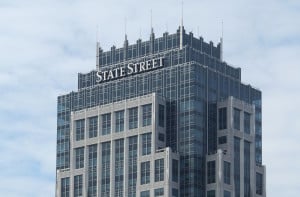State Street will pay more than $35 million to the Securities and Exchange Commission to settle allegations that it “fraudulently charged secret markups” for transition management services, and separately left out information about the operation of it’s platform for trading U.S. securities.
The SEC announced the settlement on Thursday.
The SEC order finds that State Street’s scheme to overcharge transition management customers generated approximately $20 million in improper revenue for the firm.
According to court documents, transition management is a service provided by some financial institutions to institutional customers that are undergoing a “transition,” such as changing investment advisers or investment strategies
State Street used false trading statements, pre-trade estimates and post-trade reports to misrepresent its compensation on various transactions, especially purchases and sales of bonds and other securities that trade outside large transparent markets.
The SEC asserts that when one customer detected some hidden markups and confronted State Street employees, they falsely called it a “fat finger error” and “inadvertent commissions” in order to conceal the scheme.
“Agreeing to a fee arrangement and then secretly tucking in hidden, unauthorized markups is fraudulent mistreatment of customers,” Paul G. Levenson, director of the SEC’s Boston Regional Office that investigated the overcharges, said in a statement.
Court documents allege respondents carried out a scheme to defraud six transition management customers from February 2010 to September 2011, by charging those customers hidden and unauthorized markups and commissions beyond the fees, mark-ups or commissions that the customers had agreed to pay on certain securities.
Through former employees, according to court documents, respondents instructed traders to take mark-ups and commissions in certain transitions, and then generate fraudulent reports hiding the mark-ups and commissions.
In a separate SEC order, the agency found State Street failed to inform subscribers to its government securities trading platform called GovEx that it provided one subscriber with a “Last Look” trading functionality that allowed a short period of time for the subscriber to reject a match to a submitted quote.
The subscriber used Last Look to reject 57 matches that each had a $1 million face value. State Street did not inform the counter parties that their orders had been rejected with Last Look. While developing Last Look, State Street even told one subscriber that the platform did not have Last Look functionality at all.
“Firms that run trading platforms cannot mislead subscribers about their order handling operations,” Kathryn A. Pyszka, associate director of the SEC’s Chicago Regional Office that investigated the GovEx-related disclosure failures, said in a statement.






